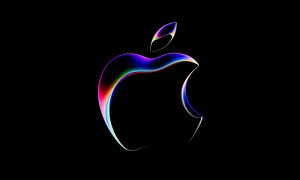

Here’s yet another stop on the merry-go-round of Apple speculation, this time it is a few patent applications for automobiles. Looks like Apple wants to include a built-in remote unlocker, engine starter, and parking locator in a future iPhone.
Not content with assisting the world with their communication, entertainment, and productivity needs, Apple may have its sights set next on your key fob. The patents (courtesy of AppleInsider) offer some insight in how the features would work, starting with the key fob. Bluetooth would be used to pair an iPhone with a specified vehicle and the user could then choose a level of security to enable. For instance, the car could be unlocked by inputting a set PIN or just by being in close to the vehicle – Apple also filed a patent to apply proximity-based tech to file transfers. The app would presumably also strive to handle other controls like the alarm and maybe even popping the trunk.
Parental control could also play a role, achieving some set rules for a teen driver borrowing their parents’ car. It would be possible to set certain times for the remote starter so a parent could limit their teen’s smartphone starter to only function until midnight or whatever. The patent also mentions being able to set a speed limit when the vehicle is being operated with a specific phone and enforcing geographic boundaries for where it can be driven. Type A parents are going to eat this up, but it could also be helpful for theft prevention.
The locator is a lot more straightforward. With the same phone connected to your vehicle’s Bluetooth, the software would detect when the car has found a parking spot and saves that data in conjunction with the parking facility. When it’s time to find your car, the same technology will connect to a network of devices in the parking facility (assuming the companies play along with Apple’s idea) and guide you back to the exact position of your car.
None of this will happen overnight as Apple would need to make some serious deals with car and parking companies, but it doesn’t seem like an impossible feat. Apple definitely has an industry reputation to rely on and could use that to persuade a company like Ford that’s already shown interest in integrating smartphones with its vehicles quite easily.

